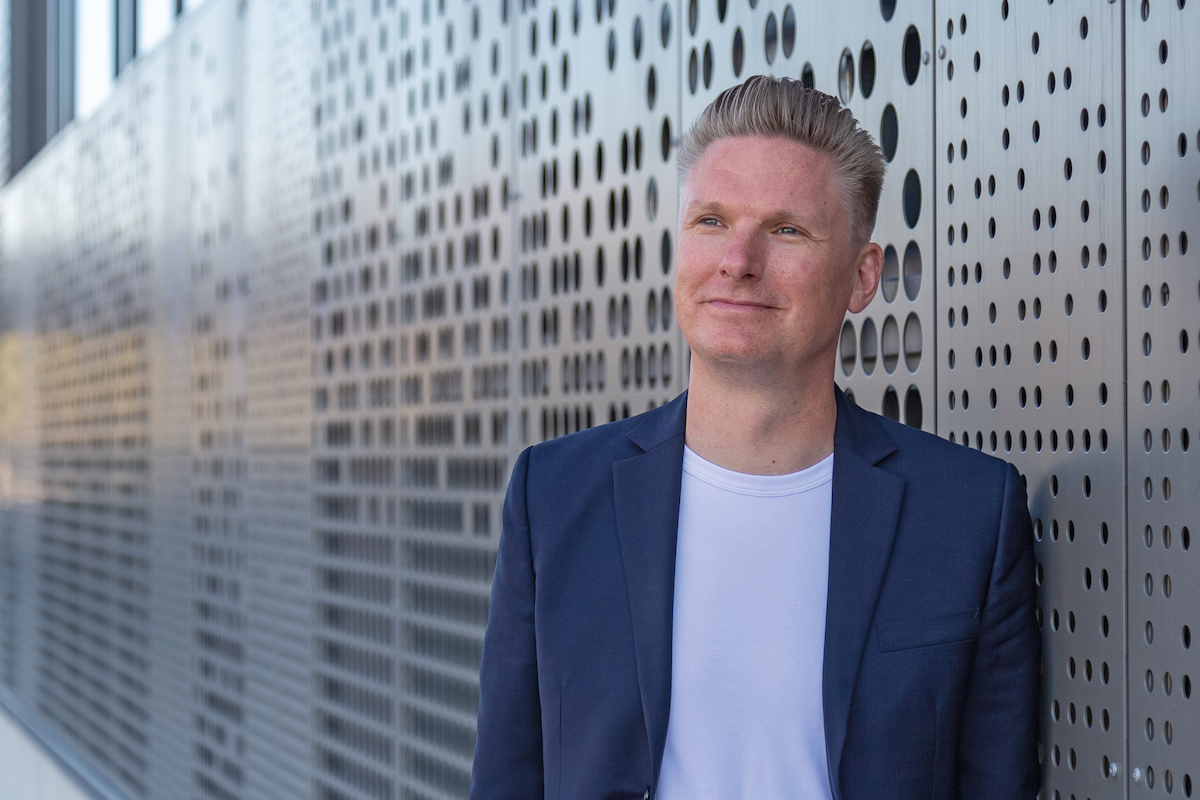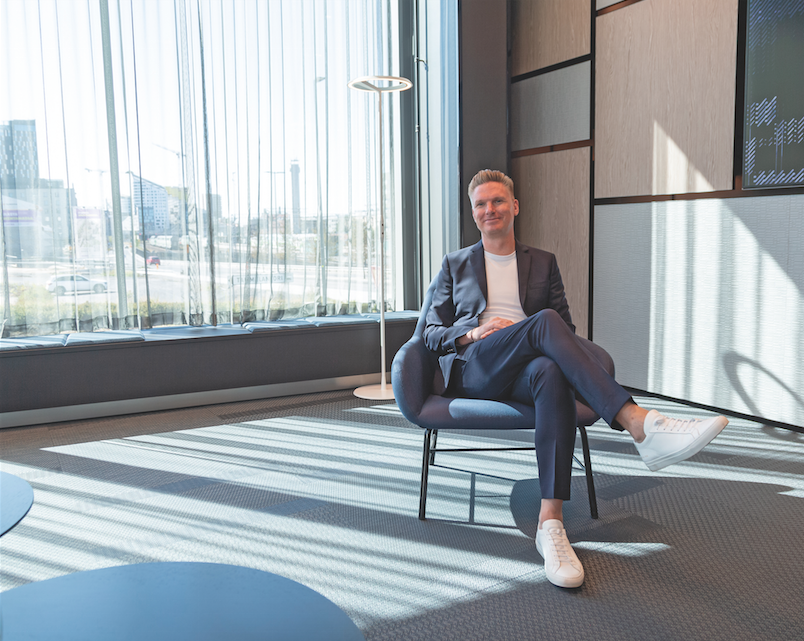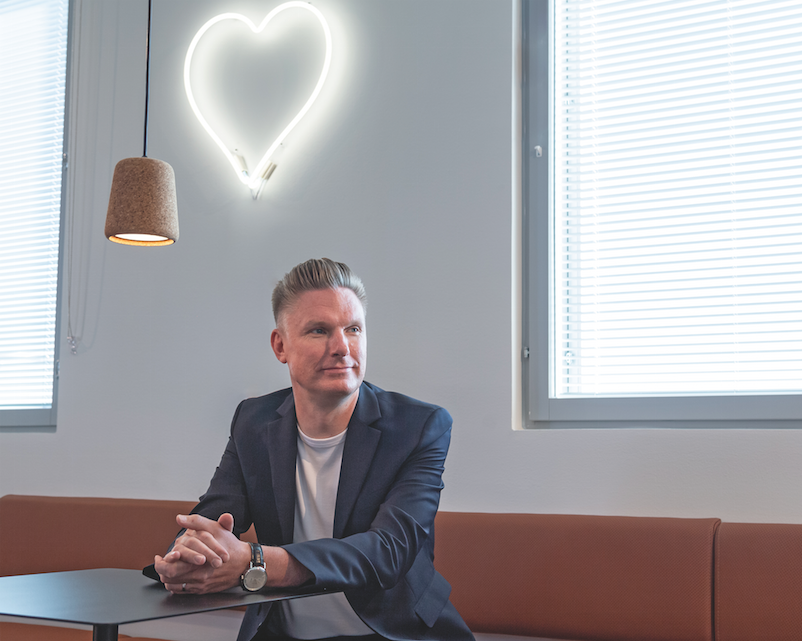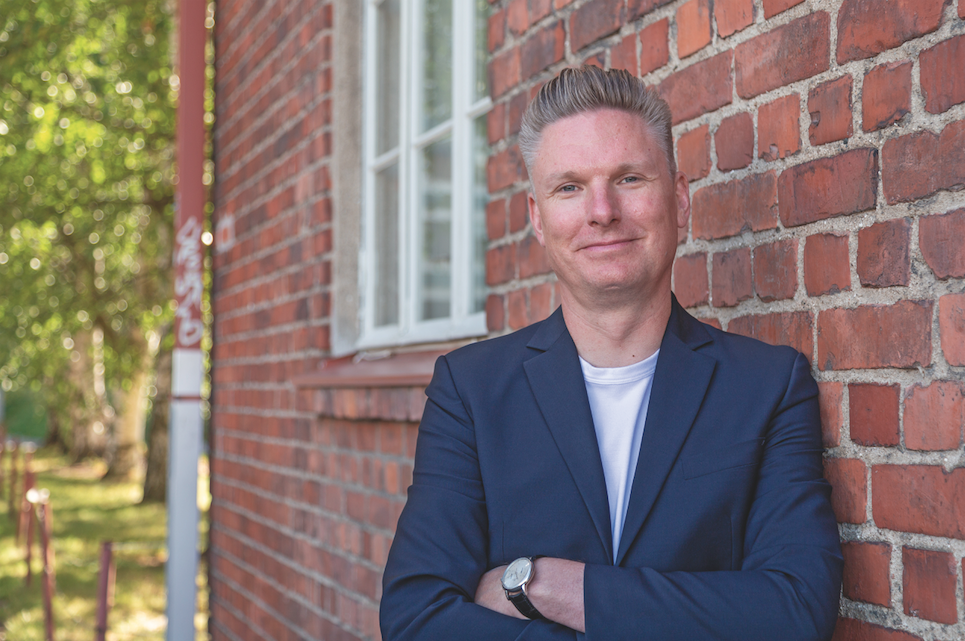Getting a job at Solita, a fast-growing Finnish digital transformation company, is harder than getting into Oxford University. Its team of some 1,200 experts beat large numbers of applicants to be there, proving they are the cream of the crop. The percentage of employees with master’s degrees in the company, for example, is among the highest in the Nordic countries.

“It’s not written anywhere that we only recruit people with master’s degrees – that’s not the case at all,” says Solita’s President and CEO Ossi Lindroos. “But for some reason, even though we don’t necessarily have the street cred of being this super cool company, there is something in our culture and value base that really attracts people.”
Solita tackles a wide range of challenges for different clients around the world with an emphasis on allowing its staff to be creative and suggest bold solutions. “It’s not so much about processes, but more about setting our teams free to really be able to deliver value for our end customers,” he shares.
For example, the company works with engineering company KONE, which makes elevators, escalators, automatic doors and movable walkways; more than a billion people a day use its products. Solita helps KONE build systems for predictive maintenance analytics, enabling it to pre-empt breakdowns and faults, and make repairs faster, ultimately adding value for customers and users.
The project is highly complex and requires staff to flex their expertise in numerous ways. “We have that kind of urge and curiosity in place that makes us want to grow,” Ossi explains. “I always say that we are big enough to dare but small enough to care. We really have the guts and the skills to play with the big guys – and the experience to back it up.”
I always say that we are big enough to dare but small enough to care. We really have the guts and the skills to play with the big guys.
At the same time, Solita fully embraces the healthy work-life balance that Scandinavia is famous for. “We believe that there is a lot of attractiveness in our story of this kind of Nordic work culture. The work–life balance and these kinds of things genuinely attract a lot of talent out there,” he says.
Attracting top-level talent is fundamental to the company’s success. In the past 12 years, it has grown its turnover from €10 million to €130 million. “We have always been a growth company, and that’s in our DNA. So if we don’t grow, let’s say, 20% a year, then that’s a disappointment,” Ossi shares, adding that in 2017, Solita went international by moving into new areas throughout Scandinavia, Belgium and Germany.
International community
However, Ossi is not interested in growth for its own sake. According to him, the phenomenal success the company has enjoyed so far is a natural consequence of the team’s intense curiosity and desire to explore new horizons. That’s why much of its growth has been organic, and Solita only considers an acquisition if it is certain that the target company can be fully integrated into its winning culture.

“We grow by doing the right things with the right people – the right customers,” Ossi says. “To grow organically within the countries in which we operate is still key in the future as well. That’s naturally important for us because we are a culture- and value-based organisation. If you only grow by acquiring companies, it’s a challenging task to get the culture and value base to stay in good shape. So we really believe in growing organically.”
That being said, Solita is actively seeking companies with a good value base in the Central European region, the Benelux countries and Denmark. It now operates in six countries, with almost 300 employees working beyond Finnish borders, and the company is seeing some of its strongest growth in Belgium and Sweden.
As the business expands internationally and embraces a work-from-home culture amid the pandemic, Ossi is availing himself of the opportunity to hire the best talent with more geographical freedom. “One thing that the pandemic has helped us with a bit is that we can genuinely start to build teams internationally,” he says.
“Where our people sit when they deliver our services doesn’t matter very much to our customers.” This could allow Solita to build a single team made up of people from Belgium, someone from Finland and someone from Sweden, for instance, all serving a customer in Denmark.
As many executives and managers have come to understand since 2020, a key challenge with remote work is being able to maintain a sense of human connection. “How can we keep that community feeling even though we are still sitting at home and not having the kind of working life together that we used to?” Ossi asks.

“We need to figure out how to maintain the culture and value base we are so proud of when people are not meeting each other face to face.” With this highly flexible international team in place, Ossi is now focusing on the best ways to bring value throughout Solita’s network of expertise.
“I think the biggest thing is to make it even easier for our people to work on international assignments, regardless of where they are, allowing them to get better at supporting customers in delivering value from distributed teams,” he says.
Data-driven transformation
As the company grows, Ossi is met with the challenge of ensuring that every segment of the organisation is capitalising on the forward-leaning technologies and processes it implements for clients. “We want those kinds of innovations to be brought to the customer in a really effective way,” he insists.
It’s data-driven transformation – that’s why we grow as fast as we grow, and it’s what really sets us apart.
As Solita forms new partnerships and attracts new business, it faces the task of convincing some partners of the importance of deep systemic transformation when it comes to their digital processes. “I think that despite the whole next generation of IT or digital transformation houses out there, there is still a group of customers who haven’t understood how fundamental the transformations are that digital processes really bring to companies,” Ossi says.
“That’s changing rapidly, but it’s still there. We still encounter companies that think that they can just buy a tool, a channel or some digital software to solve their challenges.” Many customers have begun to understand the benefits of a more holistic approach and agile ways of working, although others still need to be guided on that journey.
“What it really means to be truly data driven in your business, or what it really means when you try to get genuine value out of digital solutions, that’s what we want people to understand,” he says.
Plenty of companies offer digital transformation services, but according to Ossi, it is the richness of Solita’s knowledge about data, which it owes to its highly talented and qualified employees, that has helped the Finnish company stand out.
“If you think of digital transformation companies out there, you can find one in every single city,” he says. “What differentiates us is the scale and depth of our data expertise. The foundation is that we build award-winning solutions for our customers that are digital.
But then our data expertise is coupled together with our transformation skills, so it’s data-driven transformation – that’s why we grow as fast as we grow, and it’s what really sets us apart.”
Start small
Another crucial differentiator for Solita is its commitment to building impact that lasts. “For us, there has always been a kind of craftsmanship and a strong sense of pride in what we do – we really want to do a great job for our clients,” Ossi stresses.

“But it’s never with gimmicks or fancy stuff; it’s built in a way that customers can live a long time with the solutions that we provide for them. That naturally leads to long-lasting customer relationships, and the long-lasting customers grow the fastest.”
Ossi believes these long-terms relationships are the company’s most prized achievements. “Everything starts with how we build relationships with our customers,” he says.
“First, you need to have that excellence on board, so you can truly build meaningful solutions for your customers. That means you need to have those exceptionally talented people who are serving the customers. That’s the first thing.”
Solita’s customer leads acutely understand their customers’ circumstances, what motivates them, how they think, what kind of people they are and what challenges they face. This knowledge allows the company to go well beyond expectations in its cooperation with customers.
“It’s much deeper customer cooperation and communication than what might be considered the normal standard,” he shares. “We want to be on the same side of the table with our customers, share goals and targets, and even their joys and sorrows, and that means the individuals within the customer companies.”
Ossi explains that Solita rarely wins a big contract with a new customer right off the bat. Its relationships start with small projects, which allow the team to showcase their expertise and demonstrate how they can add value.
“We always start with small assignments with our clients and then, when customers start to work with us, they start to see that there’s more expertise in place that could help in wider and wider, bigger and bigger challenges. That’s how it goes,” he adds.
When a genuine connection has been established on a human level, Solita naturally wins bigger contracts and requests from customers.
“People and skills come first, culture and values come next, then the deep cooperation with clients, and finally we have the processes in place to bring that repetition and continuity into the equation,” Ossi concludes. “All these steps are needed in order to really gain trust, because trust is everything.”
Proudly supported by:



